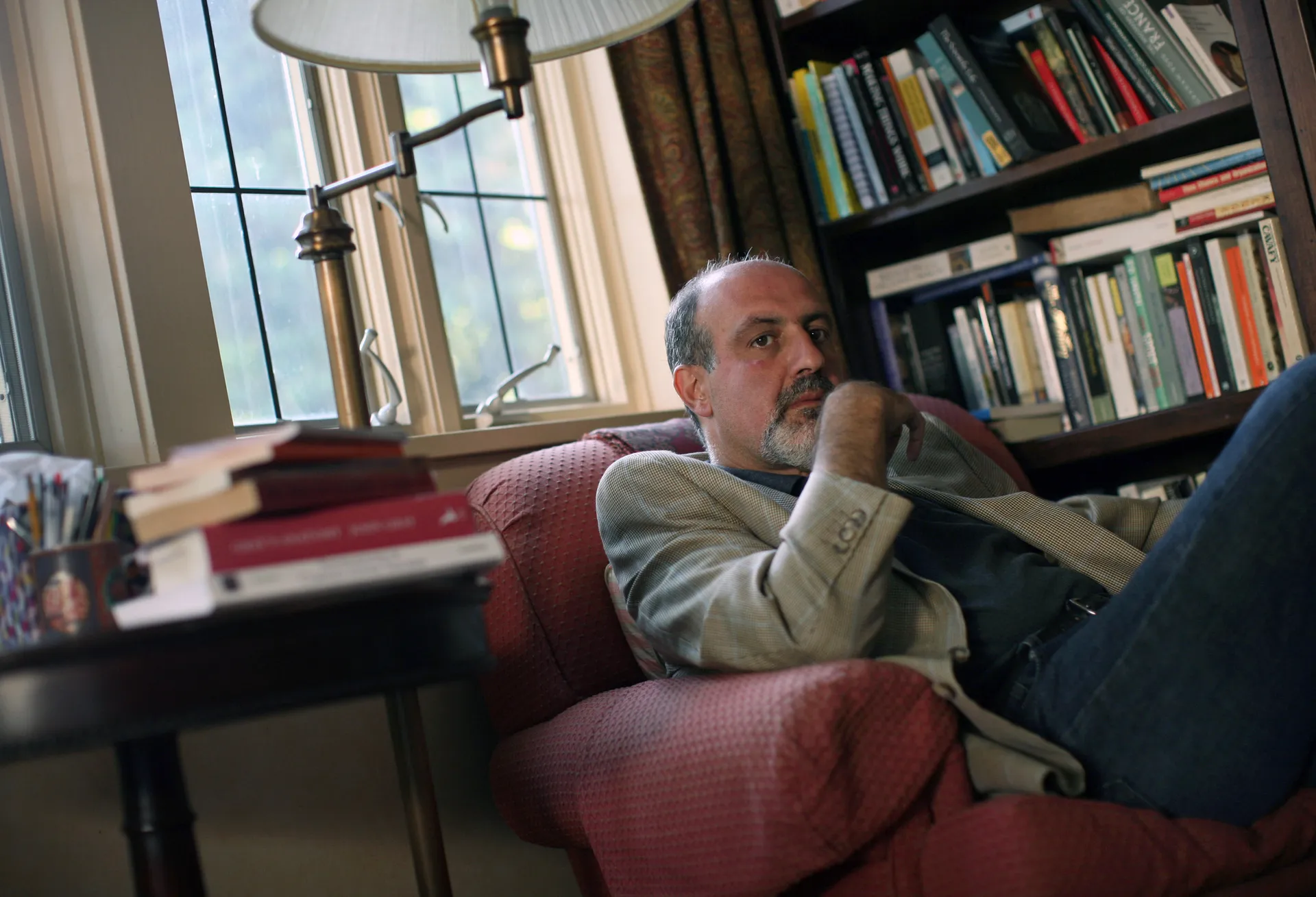Both Richard Farleighs Taming the Lion & Nassim Nicholas Taleb's classic work, Fooled by Randomness at first seem at odds. The old rivalry between skilled investing, or a benefactor of randomness. Headhunting an Australian Bond Investor to run a hedge fund in Bermuda sounds random enough, paying that Australian Bond Investor 10 million just on taking the job of trading would suggest either the owner of that hedge fund is an idiot, or Richard Farleigh knew something, or could do something that others simply could not.
I risk writing this article ahead of time, as I have not finished reading Fooled by Randomness which has been enjoyable. However, the common threads between commentators especially with those ideas seem diametrically opposed has always demanded my attention. Something modern day society has seemed to forget. So what are these commonalities, what are the differences and what can we learn from these two giant personalities.
Understanding the difference between probability and expectations
Both works outline and discuss the differences between probability and expectations. Nassims clear explanation is one of the best I have heard.
"But Nassim, you just boasted being short a very large quantity of SP500 futures, making a bet that the market would go down. What made you change your mind?" "I did not change my mind!, i have a lot of faith in my bet"...."My opinion was that the market was more likely to go up, but that it was preferable to short it, because in the event of it going down, it could go down a lot"
- Nassim Nicholas Taleb
While Richards sentiment of the outcome of an investment or trade is not necessarily a true reflection of the merits of the original idea, is easy to relate to. Experienced investors know the frustration of investing in a brilliant idea, or trade, only for it too move against you.
"I used to find it very frustrating when i backed an ideas that didn't work out the way i hoped. I took it as a sign that my ideas where flawed in the first place. Today, i am a lot more philosophical... i ask myself, were these silly investments? But i think the answer is negative. I think that my reasoning was sound, and that the risk-reward when i invested was very attractive. So i put the losses down to probability, and to 'you win some, you loose some.' Both of these investments could have done very well and paid big multiples of the amounts invested."
- Richard Farleigh
Richard also speaks about how asymmetry fools investors,
"However, there is an asymmetry, because most years they will pay off, but in a bad year they can be horrendous"
- Richard Farleigh
Critical Thinking when their is a revision of their stance
I had the recent frustrating experience of placing a trade with a probability of success greater than failure. It moved against me, and I did the right thing (right thing defined by my methodology) by exiting the trade at a loss. Their was then an announcement of buying shares at a discounted price with a re-issue, and an announcement of a new Intellectual Property with a new leader of the industry joining the management team. I could had held on to the loss and captured at least a 9% gain, however the pride in being disciplined the methodology, something of which has been lacked in the past, holds greater merit to me than proclaiming an alpha of 7.5% in a month.
Nassim has a hard hitting quote, which resonates with this scenario concerning 'fools'
"They [investors] did not consider that perhaps their method of determining value is wrong, rather than the market failing to accommodate their measure of value. They may be right, but, perhaps, some allowance for the possibility of their methods being flawed was not made."
- Nassim Nicholas Taleb
However, the skilled investor, in our case Mr Farleigh does not seem to be a fool. I also link this comparison of opinions. Stop loss's are almost an absolute from other learning sources. They are the sure-fire way to avoid the emotion of closing a loosing trade, which could save the person investing from further losses. Closing a loosing trade is one, if not, the hardest thing to do. It is also a direct parallel to people's real world behavior. People hate to admit they are wrong, especially to other people. Closing a loosing trade is a direct real world example of admitting to somebody else (the market) that you were wrong. Which makes the stance by Richard all the more insightful.
"I'm not sure it is necessary if other risk management ideas in this chapter are followed. In fact, I think the choice to cut a loosing position is a dilemma"
- Richard Farleigh
This is a clear rebuttal to the position taken by almost everyone in the commons, and most learning i have come across so far. In Richards defensive (in my defense of respecting Richards view, he does state "beginner investors should be especially cautious about mounting losses."
Richard's stance can be summarized as follows.
Cut if one of the following is met;
- Threatening the destruction of your finances
- If you are confused as to what is happening
- If the fundamentals are moving against you.*
"There is an old saying along the lines of 'the market can remain irrational much longer you can remain solvent"
- Richard Farleigh
You can choose not to cut if both the following are met;
- You have the capital to sustain further losses &
- You understand the reasons for the adverse price move, but remain confident that there will be a recovery &
- The original fundamental hypothesis remains intact.
"Sometimes you can cut a position and then the market recovers. Don't be put off stop-losses by those experiences. The horrible feeling of cutting positions only to watch the price turn and recover is one of the worst for a trader. Remember though, we are talking about probability and random events, and over all sorts of good and bad things will happen."
- Richard Farleigh
Nassim also outlines the foolish act of "the tendency to change their story", which Richard directly addresses above through both criteria, the original fundamental hypothesis remains intact and you understand the reasons for the adverse price move. It also address another of Nassims perspective of what makes foolish traders. "No precise game plan ahead of time as to what to do in the event of a loss."
"There is absolutely nothing wrong with investing 'for the long haul' provided one does not mix it with short term trading- it is just that many people become long-term investors after they loose money, postponing their decision to sell as part of their denial"
- Nassim Nicholas Taleb
Part II coming soon.




